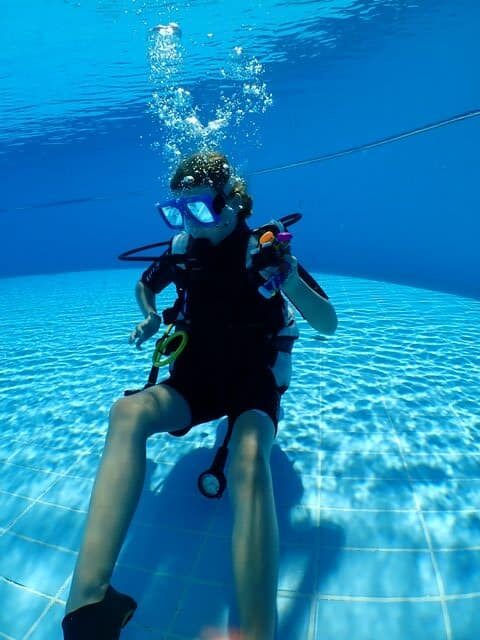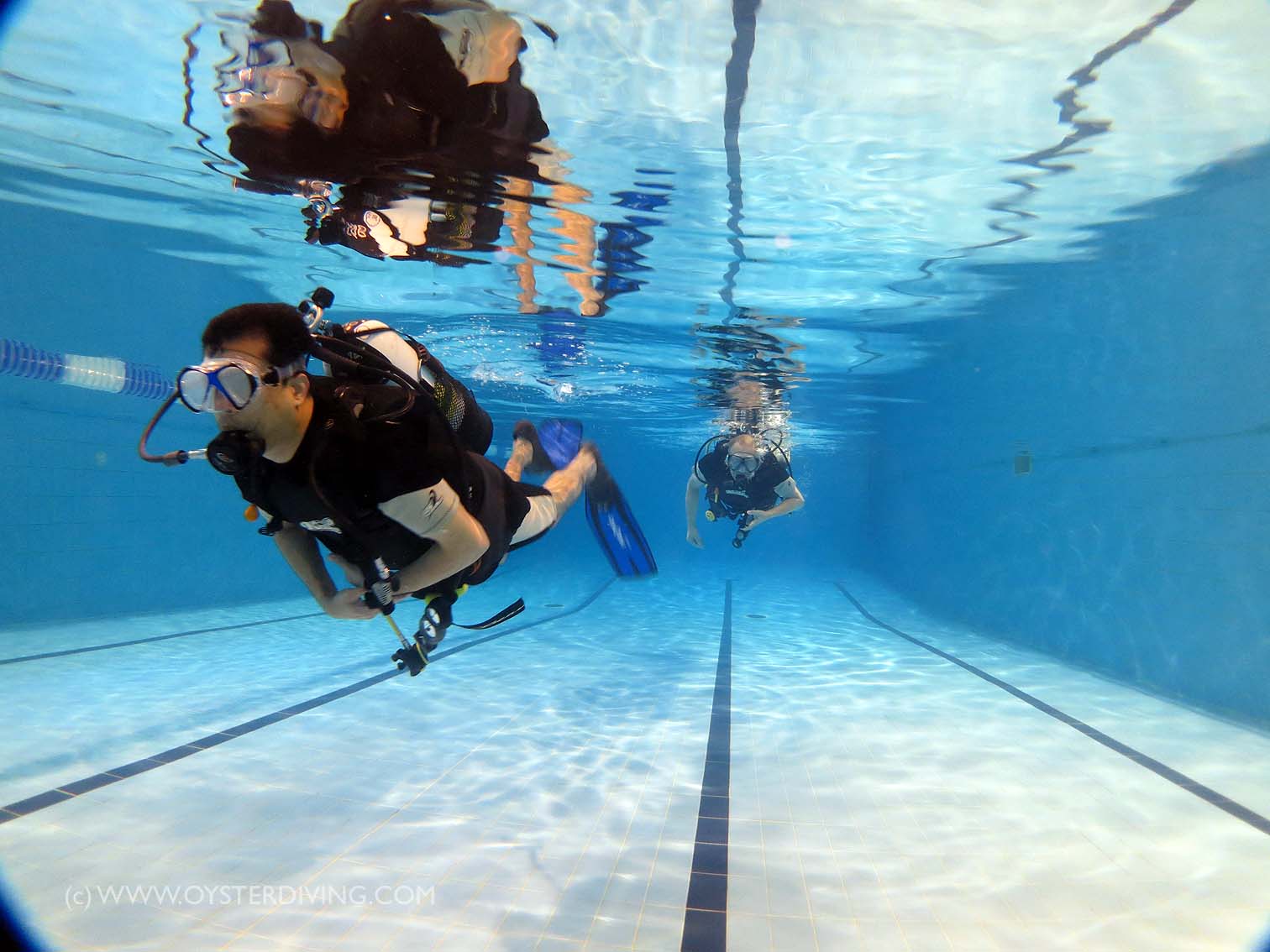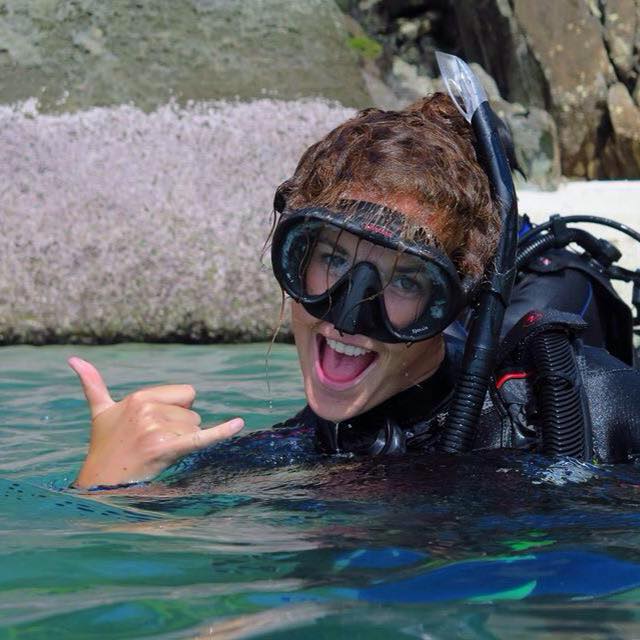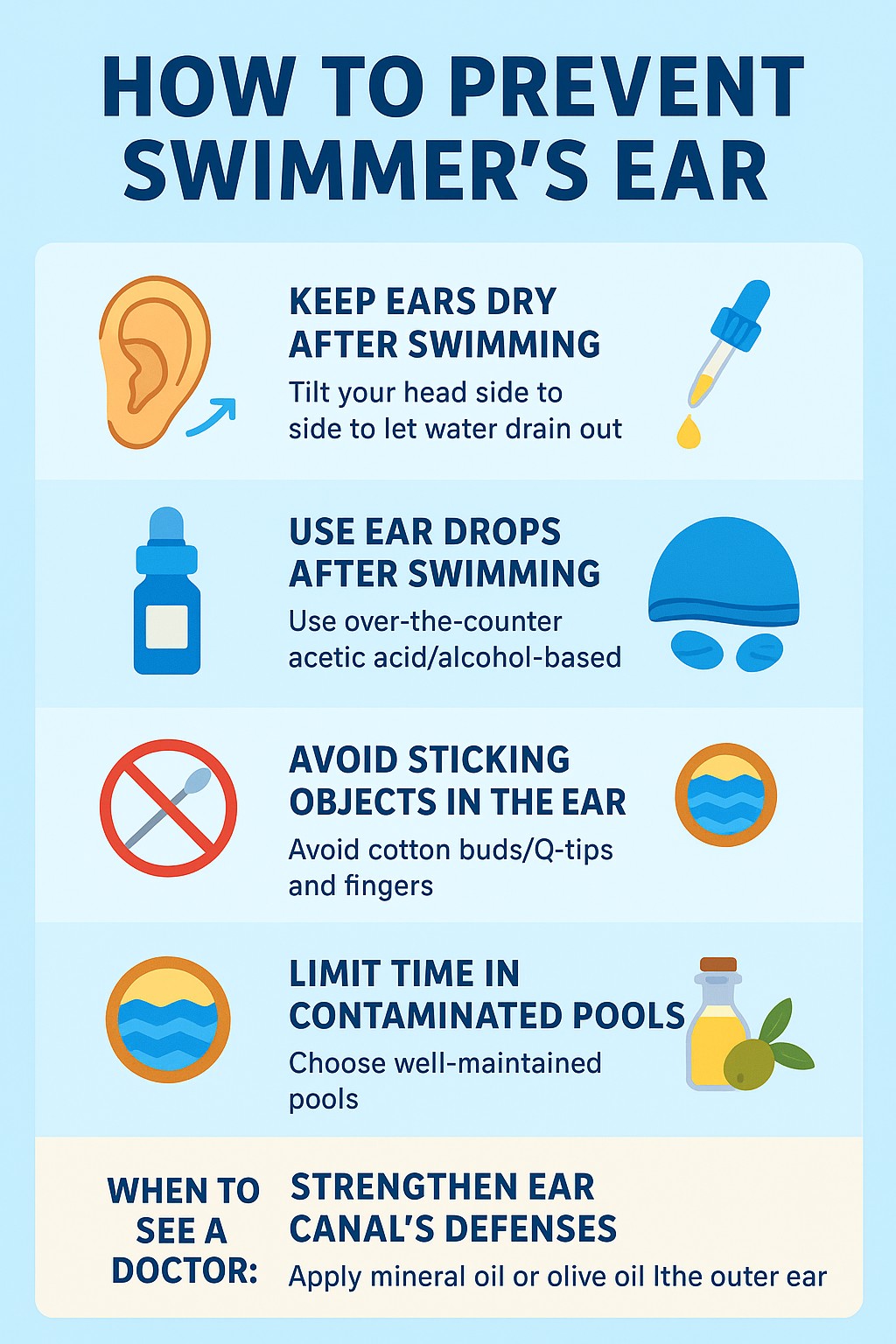How to Avoid Getting Ear Infections for Swimmers and Scuba Divers
Ear infections are one of the most common annoyances faced by swimmers and scuba divers. Known as swimmer’s ear (otitis externa), this condition occurs when water gets trapped in the ear canal, creating a moist environment where bacteria or fungi can thrive. For divers, it can be particularly disruptive, as blocked or irritated ears can affect equalisation and even lead to cancelled dives.
The good news? With the right habits and precautions, you can significantly reduce your chances of developing ear infections while enjoying the water.

Why Swimmers and Divers Get Ear Infections
Ear cleaning mistakes: Using cotton buds or objects to “dry” the ear can scratch the canal, making it easier for infections to take hold.
Trapped water: Pool or seawater left in the ear canal creates the perfect breeding ground for bacteria.
Chlorine and salt exposure: Chemicals and saltwater can irritate the delicate skin inside the ear.
Frequent immersion: Regular swimming or diving increases exposure and reduces the ear’s natural defences.
Top Tips to Prevent Ear Infections
1. Dry Your Ears Thoroughly After Swimming or Diving
A hair dryer on the cool setting, held at arm’s length, can also help dry the canal.
Tilt your head side to side and gently pull your earlobe to release trapped water.
Use a soft towel around the outer ear.


2. Use Ear Drops After Swimming or Diving
Over-the-counter swimmer’s ear drops or a doctor-recommended solution can help by drying out residual water and restoring the ear canal’s natural pH balance.
Do not use ear drops if you have ear tubes, a perforated eardrum, or a current ear infection.
Vinegar and alcohol-based drops are effective for prevention.
3. Wear Protective Gear
Divers SHOULD USE vented earplugs designed for equalisation.
Swim earplugs (custom-fitted or silicone) prevent water from entering the ear canal.
Neoprene ear bands can provide extra protection for both swimmers and divers.


4. Avoid Sticking Objects in Your Ears
Let your ear’s natural cleaning process (wax moving outward) do the job instead.
Cotton buds, fingers, or other objects can scratch the skin and push wax deeper.
5. Choose Clean, Well-Maintained Pools
Poorly balanced pool water can increase infection risk. If possible, swim in well-maintained pools and rinse your ears with fresh water after ocean or lake dives.


6. Create a Protective Barrier
Some divers use a drop of mineral oil or olive oil before swimming to coat the ear canal and reduce irritation. This should only be done if you have healthy ears with no history of perforations or surgery.
The Best Remedies for Preventing Ear Infections
1. Keep Ears Dry After Swimming
- Tilt your head side to side to let water drain out.
- Gently pull on your earlobe in different directions while tilting to help release trapped water.
- Use a soft towel around the outer ear.
2. Use Ear Drops After Swimming
- Over-the-counter acetic acid/alcohol-based “swimmer’s ear drops” (or a homemade 1:1 mixture of white vinegar and rubbing alcohol, if recommended by your doctor) can help dry the ear canal and restore its natural balance.
⚠️ Do not use these if you have ear tubes, a perforated eardrum, or ongoing ear problems — check with a doctor first.
3. Wear Protective Gear
- Swim earplugs: reusable silicone or custom-fitted plugs are best at keeping water out.
- Swimming cap or ear band: adds another layer of protection.
4. Avoid Sticking Objects in the Ear
- Cotton buds/Q-tips and even fingers can irritate the ear canal and increase infection risk.
5. Limit Time in Contaminated Pool
- Pools with poor chlorine balance or hygiene can increase risk. Shower before and after swimming, and choose well-maintained facilities.
6. Strengthen Ear Canal’s Defences
- Some people apply a tiny bit of mineral oil or olive oil in the outer ear before swimming (creates a barrier) — but only if there’s no perforation or ear condition.

When to Seek Medical Help
If you notice:
- Ear pain or itching
- Muffled hearing
- Discharge from the ear
- Swelling or redness
…it’s best to stop swimming/diving and see a doctor promptly to prevent complications.
Final Thoughts
Keeping your ears healthy is essential for both comfort and safety in the water. By adopting these preventive measures – drying your ears properly, using protective drops, wearing earplugs, and avoiding ear trauma, you’ll greatly reduce your risk of swimmer’s ear and keep enjoying your dives and swims without interruption.
At Oyster Diving, our instructors always stress the importance of ear care for divers. Whether you’re training in the pool or exploring the ocean, protecting your ears means more time underwater doing what you love.
Useful websites:
Boots the Chemist
PADI – Ear Equalization and Ear Care for Scuba Divers
